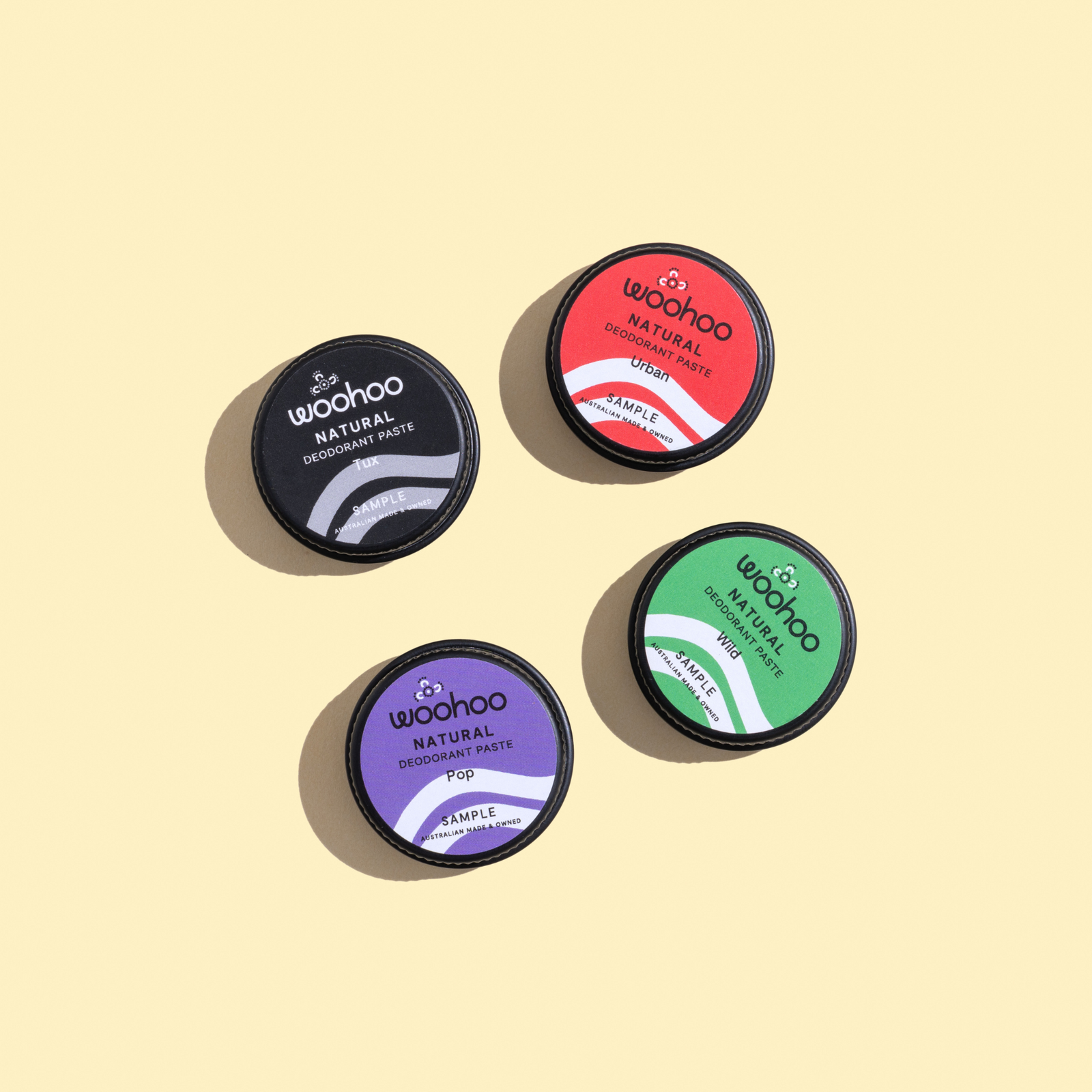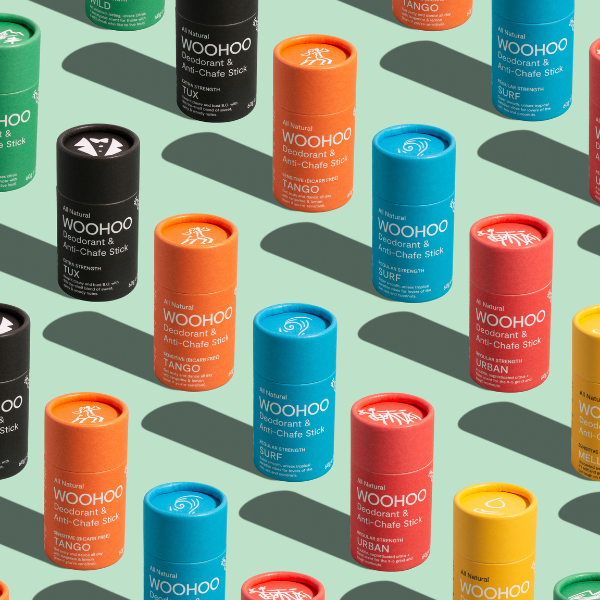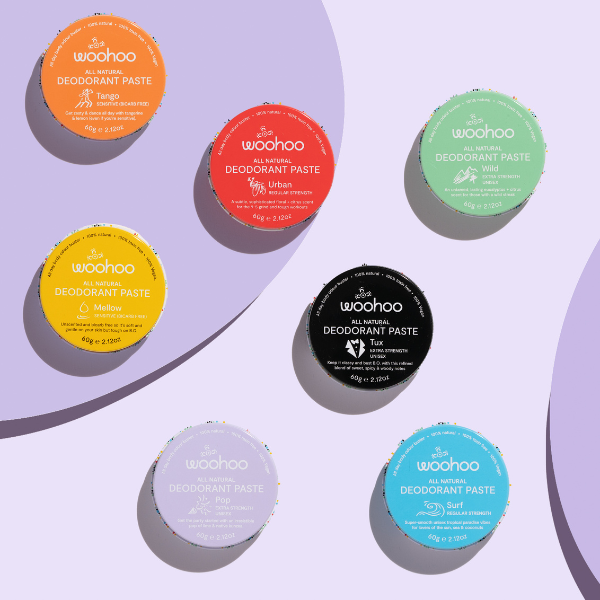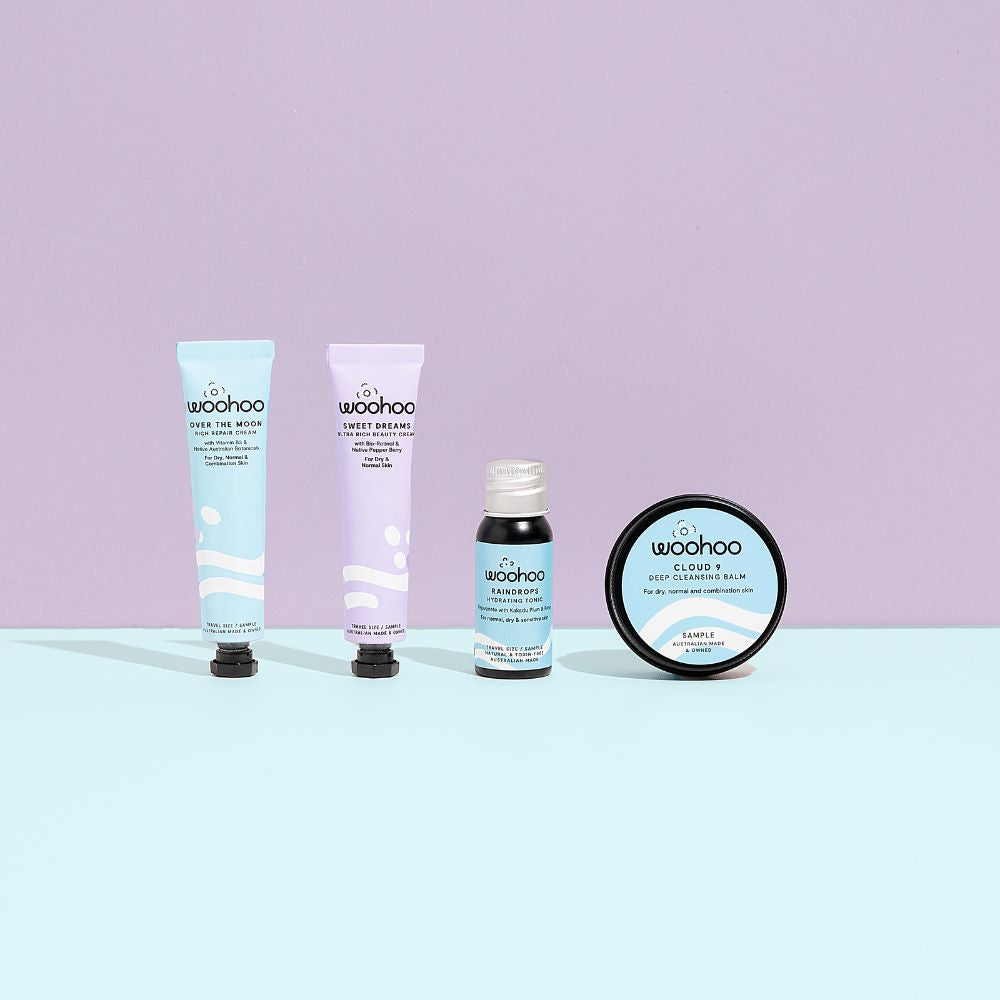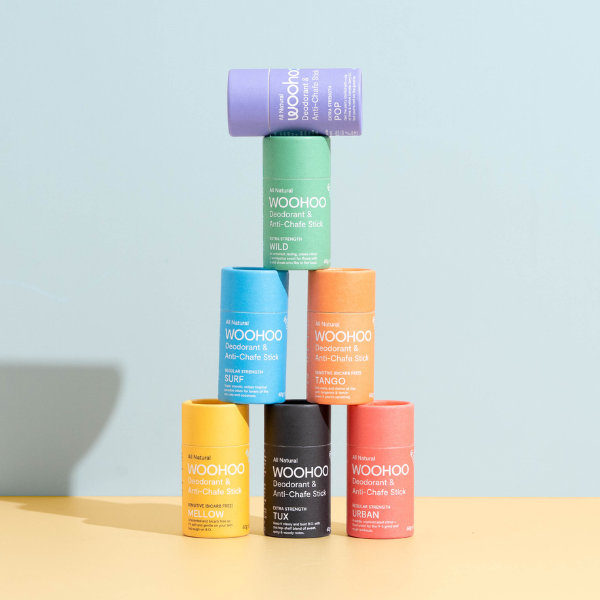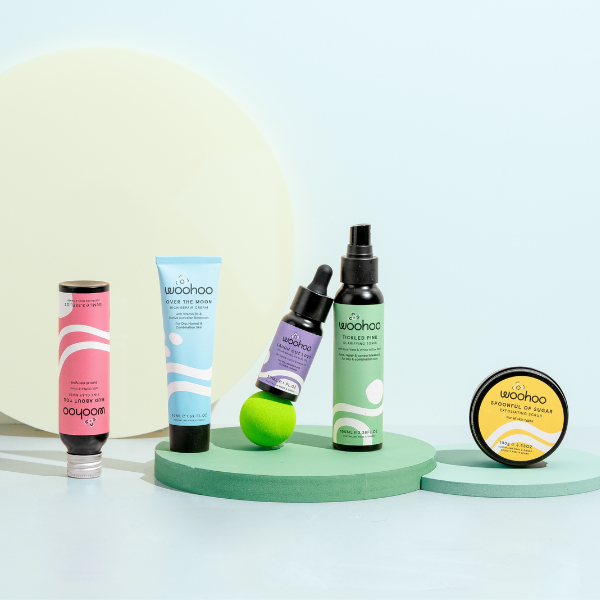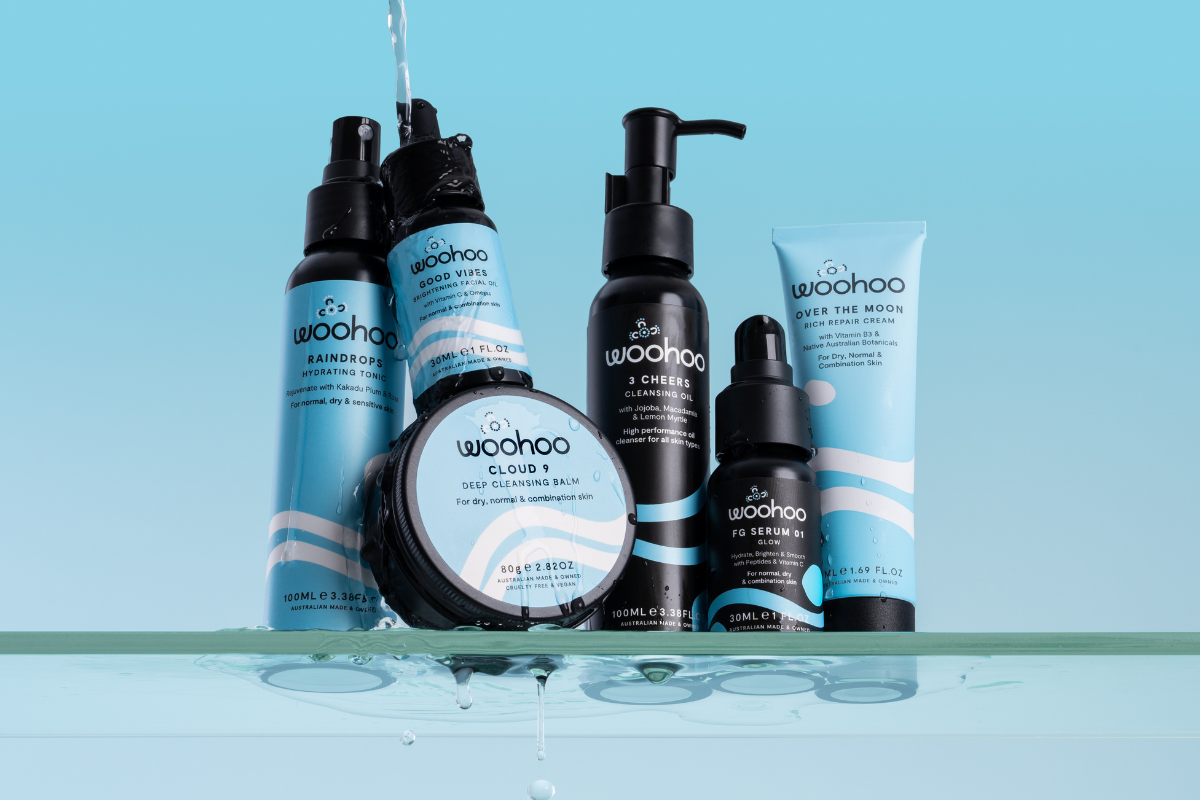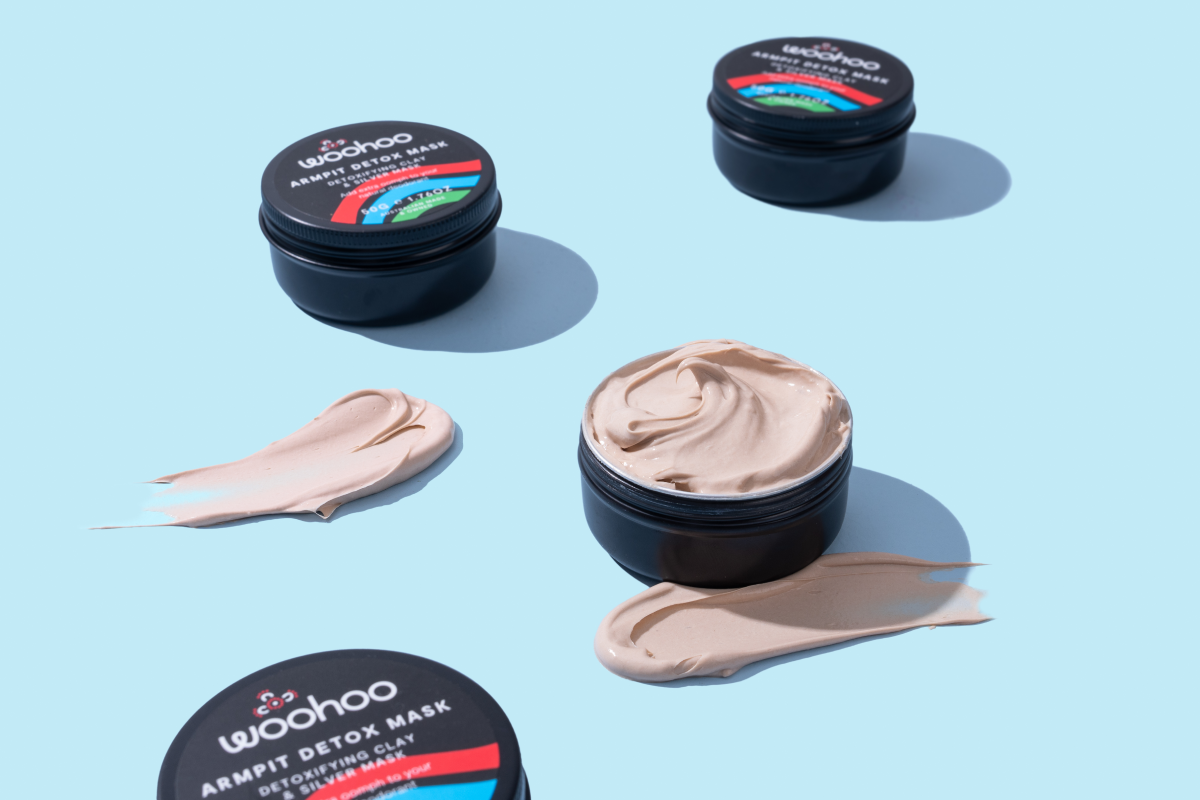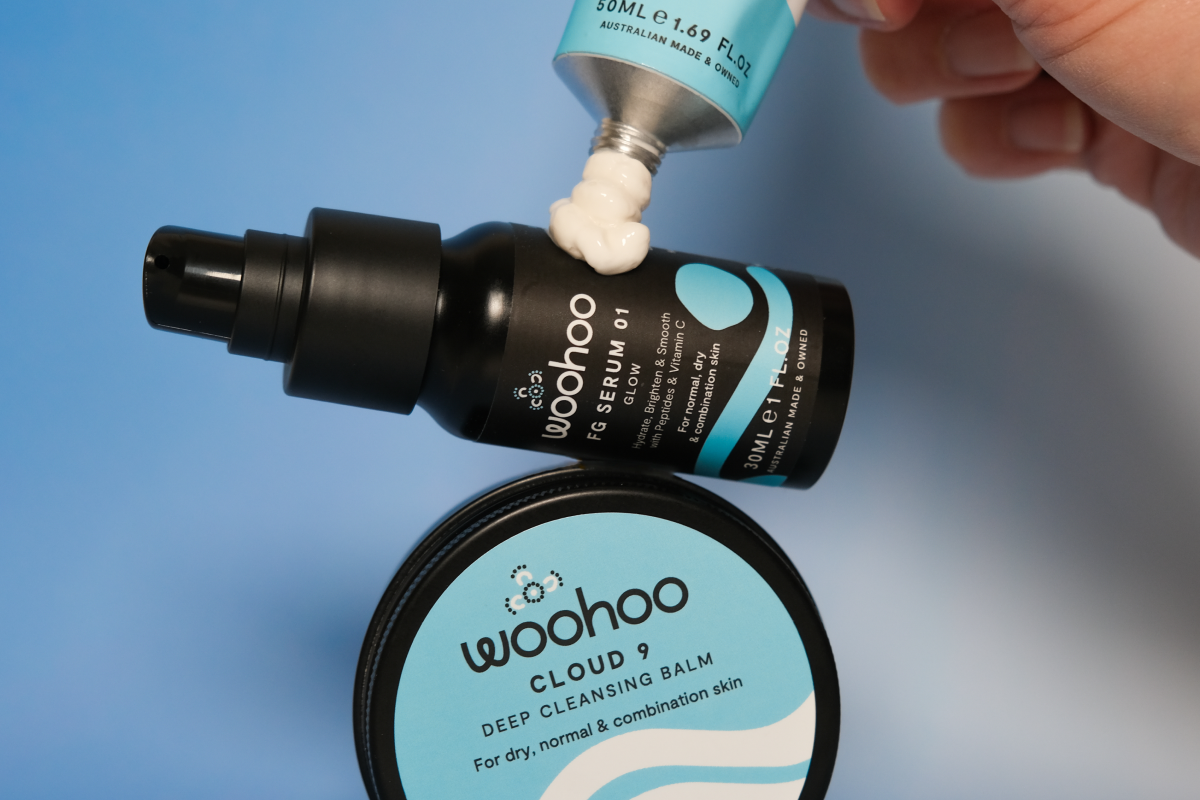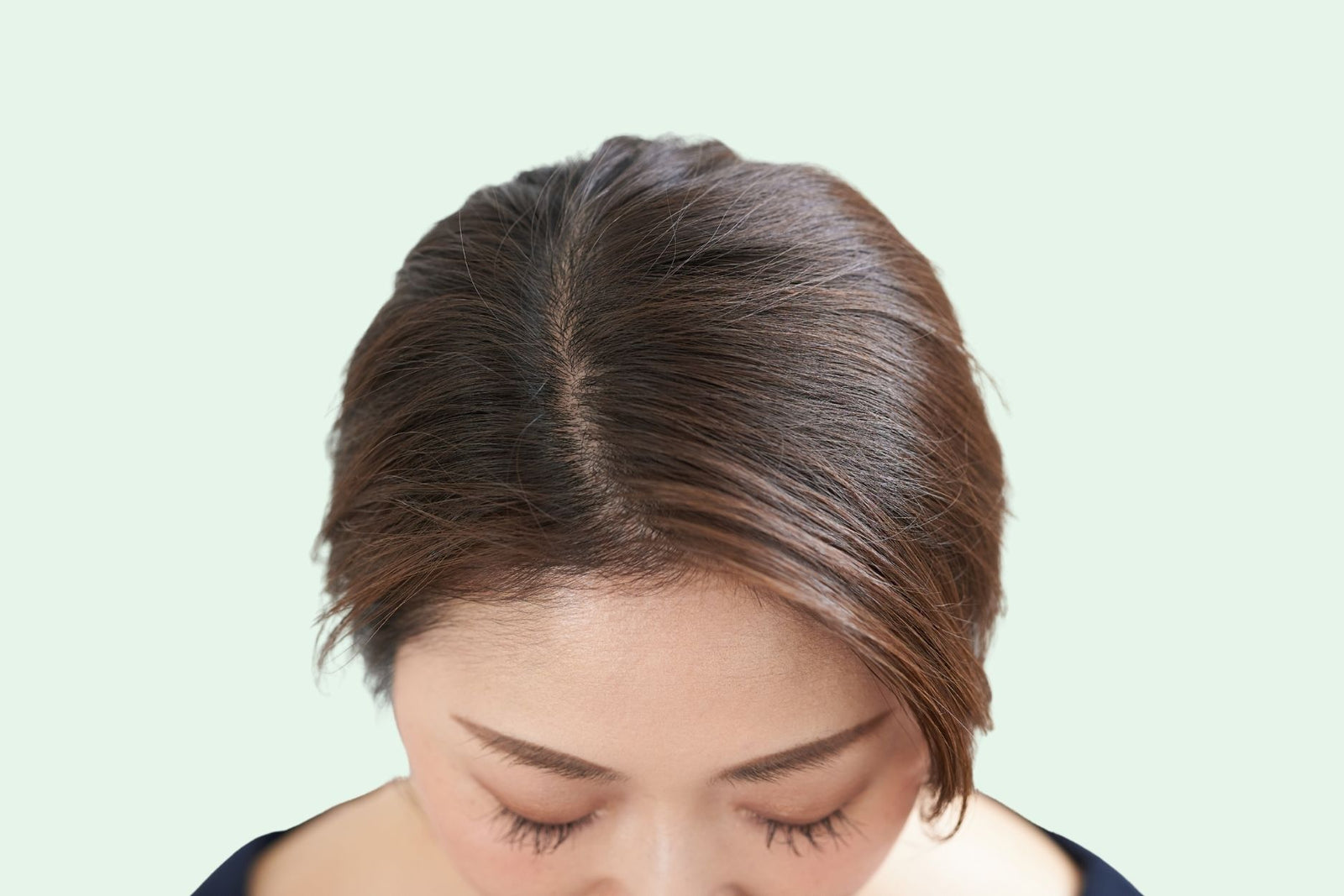
Your scalp tends to be one part of your body you give very little attention to.
And yet it’s the foundation for healthy, happy hair.
You see, your scalp is an extension of your skin, with thousands of sebaceous glands, hair follicles, and sweat glands.
When your scalp is healthy (just like the healthy soil of a garden bed), the hair follicles are able to flourish and produce strong, luscious locks. On the flip-side, a sensitive scalp can lead to all sorts of hair woes (aka, weeds!).
What causes a sensitive scalp?
There are many different causes of a sensitive scalp, including unhealthy lifestyles, not-so-great hair habits, skin conditions such as seborrheic dermatitis, scalp psoriasis, eczema, and reactions to hair products.
Ageing is another factor.
Your scalp ages just like the rest of your skin. Ageing skin tends to lose its ability to form an oily protective barrier (called the acid mantle) on the surface of the skin. This barrier is very important because it keeps all the goodness and moisture in, and the bad stuff out.
If your scalp’s protective barrier is damaged you might experience all sorts of drama - itchiness, redness, dandruff, and brittle, dry or thin hair. Who knew our scalps could be such divas?
Other causes of a sensitive scalp can be a little more serious and may require an appointment with a medical professional to help clear them up.
Understand your scalp type
Just like there are different skin types, there are different scalp types.
To understand scalp care better and map out a routine to keep sensitivity at bay, you need to figure out what scalp type you have.
The three stooges of sensitive scalps:
1. DRY SCALP
If you have irritated skin on your scalp and/or are constantly scratching your head and shedding more flakes than a pastry chef, you may be dealing with a dry scalp. This happens when your pH levels are too high, and your scalp produces less sebum. This can disrupt the scalp’s protective barrier, making it harder to fight off pesky bacteria and other skin conditions. A dry scalp needs moisture to restore its protective barrier and keep flaking, itchiness, and breakage at bay.
2. OILY SCALP
If your hair feels oily enough to fry an egg on it after only a couple of days post-wash, then you might have an oily scalp. When your sebaceous glands go into overdrive, producing more sebum (your skin’s natural oil) than necessary, your hair becomes a magnet for dirt and impurities, often leading to dandruff. And then there’s the microbe, Malassezia Globosa, which loves to party on oily scalps by producing more oleic acid in response to the extra sebum. This causes even more irritation, turning your scalp flaky to get rid of the irritant, which can trigger dandruff and sensitivity. Therefore, an oily scalp requires a hair routine that balances sebum production, defeats dandruff, and reduces scalp itch all-in-one.
3. COMBINATION SCALP
Combination scalps are tricky! It's when you have oily roots and dry, frizzy ends, making your hair feel like a science experiment gone wrong. This is because of overactive sebaceous glands and poor scalp conditions, which prevent your hair from getting the essential oils it needs to thrive. Combination scalps need a shampoo and conditioner that will gently cleanse your scalp and moisturise your tresses at the same time, helping maintain a good pH of around 5.5 and balancing your scalp’s microbiome with good bacteria.
What if I don’t have any of these scalp types?
Congrats! You likely have a normal scalp, which is the MVP of the hair game. It's the perfect foundation for gorgeous, healthy strands and has the right amount of sebum and an ideal pH level. Chances are you don’t have a sensitive scalp so can skip the tips below. Ooo, lucky you.
How to look after your sensitive scalp
Thankfully, in the same way you would address sensitive skin, making some adjustments can help see an end to scalp sensitivity.
Here are a few not-too-tricky changes that all scalp types can benefit from.
Hold off on the hot showers
Sure, soaking in a hot bath or standing under a scalding hot shower might feel super relaxing, but it’s not the best for your skin – or your scalp. Heat saps moisture from your skin leaving it parched, tight and maybe even a tad itchy (not great if you have a dry scalp!). So turn down that dial and opt for lukewarm water instead.
Steer clear of harsh products and over-washing
The biggest culprits for scalp sensitivity are hair products. Yup, your new hairspray might leave your locks looking super glossy, but your scalp is screaming “mercyyyyy”. There are a bunch of common hair care ingredients that can really irritate an already sensitive scalp. Regular offenders include parabens, phthalates, dyes, fragrance and some alcohols (although, fatty alcohols in haircare are a-ok!).
Strong cleansing agents (such as sodium laureth sulphate and sodium laurel sulphate i.e. SLS/SLES) aren’t ideal for sensitive skin either because they can over-wash your hair and strip your scalp of its natural protective oils and strengthening proteins. So, if possible, switch to a sulphate-free shampoo and conditioner like these.
Avoid product build up
If you’re a fan of dry shampoo or any styling product at that, listen up! Overuse of hair products can quickly cause a residue build-up, which can lead to clogged pores, itchiness, and sebum build-up. Excess sebum on the scalp can lead to fungi growth as the sebum and dead skin cells have nowhere to go with the layer of product build-up, causing your scalp to dry and flake, leading to sensitivity and irritation. The best way is to avoid this is to cleanse your hair (with a gentle shampoo) frequently enough to reduce the amount of build-up that accumulates over time. But don’t overdo it!
Careful styling
Overdoing straightening, heat styling and chemical treatments can cause dryness and irritation to your scalp. So, hold off on the hair dryer and step away from the straightener. Your best bet is to allow your hair to dry naturally, if you can. Be extra gentle when brushing your hair, too. Tugging at knots and tangles will put pressure on your scalp.
While your choice of hairstyle might not be the first thing that comes to mind when managing scalp sensitivity, it can add to your discomfort. Tight styling techniques, like super-high ponytails and updos that require a trillion bobby pins to stay put, are likely to put stress on your strands and scalp. Be tender with your tresses and opt for a loose style, like a low bun or a ‘scruffy’ ponytail. You never know, the relaxed style might just be your new “thang!”
Check in on your diet
It’s not just your hair habits that are to blame – what you’re eating can also play a starring role in scalp sensitivity. An unbalanced diet with a lack of nutrients can cause your hair to become dull and limp as well as causing scalp problems.
To support your hair and scalp health make sure you eat a diet that’s colourful and varied. Think of it as a party for your belly! Chow down on foods full of vitamins A, C, D, & E, zinc, B vitamins, iron, biotin, protein, and essential fatty acids are key for scalp health. Brazil nuts, avocados and berries are all fabulous (and yummy!) options. Eggs and oily fish are also great choices if you’re not vegan.
When you’re well on the inside, you’re much more likely to be healthy on the outside—and this includes your skin and hair.
Stress less (if you can!)
Stress is another big factor that can affect our general wellbeing, and as a result your skin (that includes the skin on your noggin). How so? Well, stress boosts the body’s cortisol (stress hormone) levels and this directly impacts the function of the hair follicles. But also, stress can affect the nervous system and cause itching and burning of the skin—including the scalp. Jeez, if you were looking for an excuse to book in for a relaxing massage, now you have one. It’s all in the name of scalp wellness!
Invest in the best products for your scalp.
Our 'Respect My Roots' Natural Shampoo and Conditioner are purposefully designed to promote hair and scalp health, without the ingredients that aggravate sensitive scalps.
Our formulas leave out your regular shady characters (sulphates, parabens, artificial fragrances and colours) and are gentle on sensitive scalps - dry, oily and combination - so they won’t leave you madly scratching or irritated.
Enriched with amino acids and hydrating skin-identical emollients, they maintain moisture levels, and help prevent dryness, so your hair and scalp will left feeling happy and oh-so-healthy!
Remember, a healthy scalp = healthy hair. Follow these tips and you’ll be on your way to crowning glory in no time!
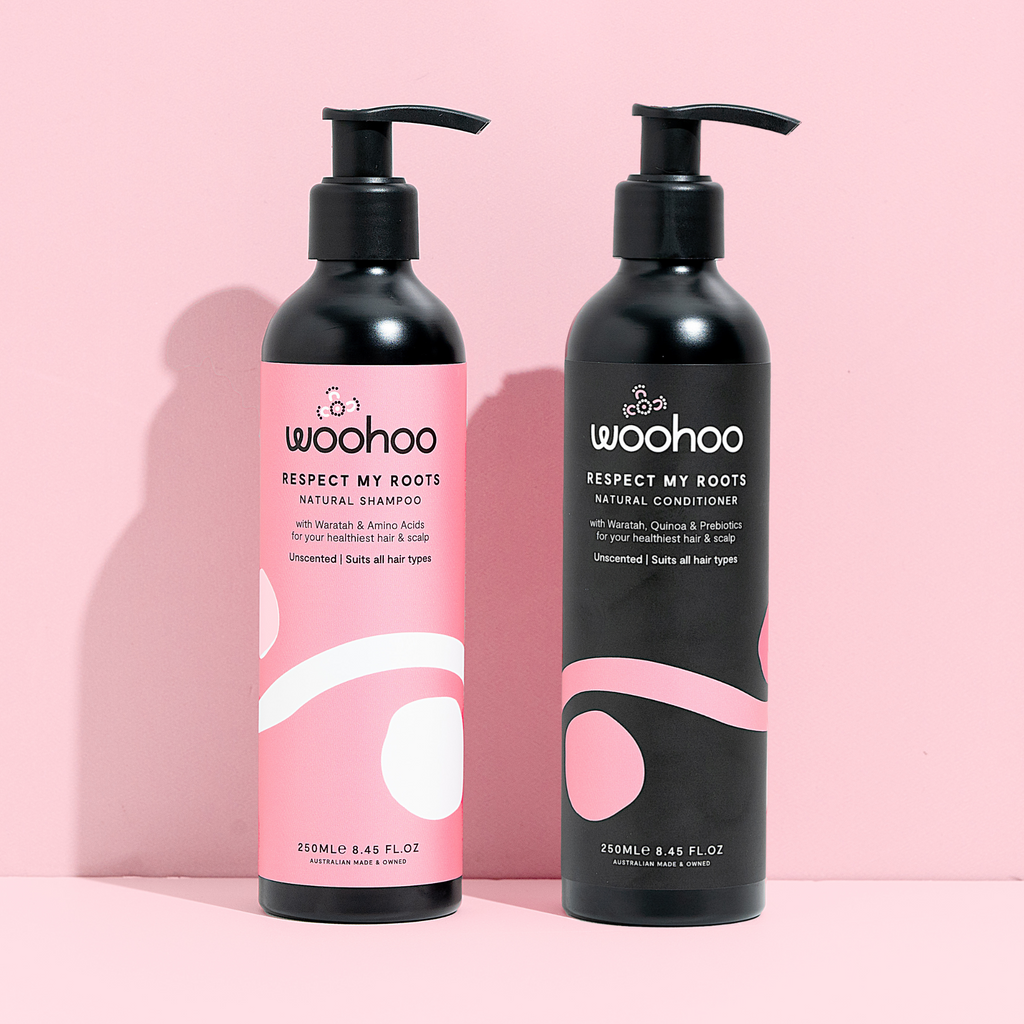
'Respect My Roots' Natural Shampoo and Conditioner Bundle

